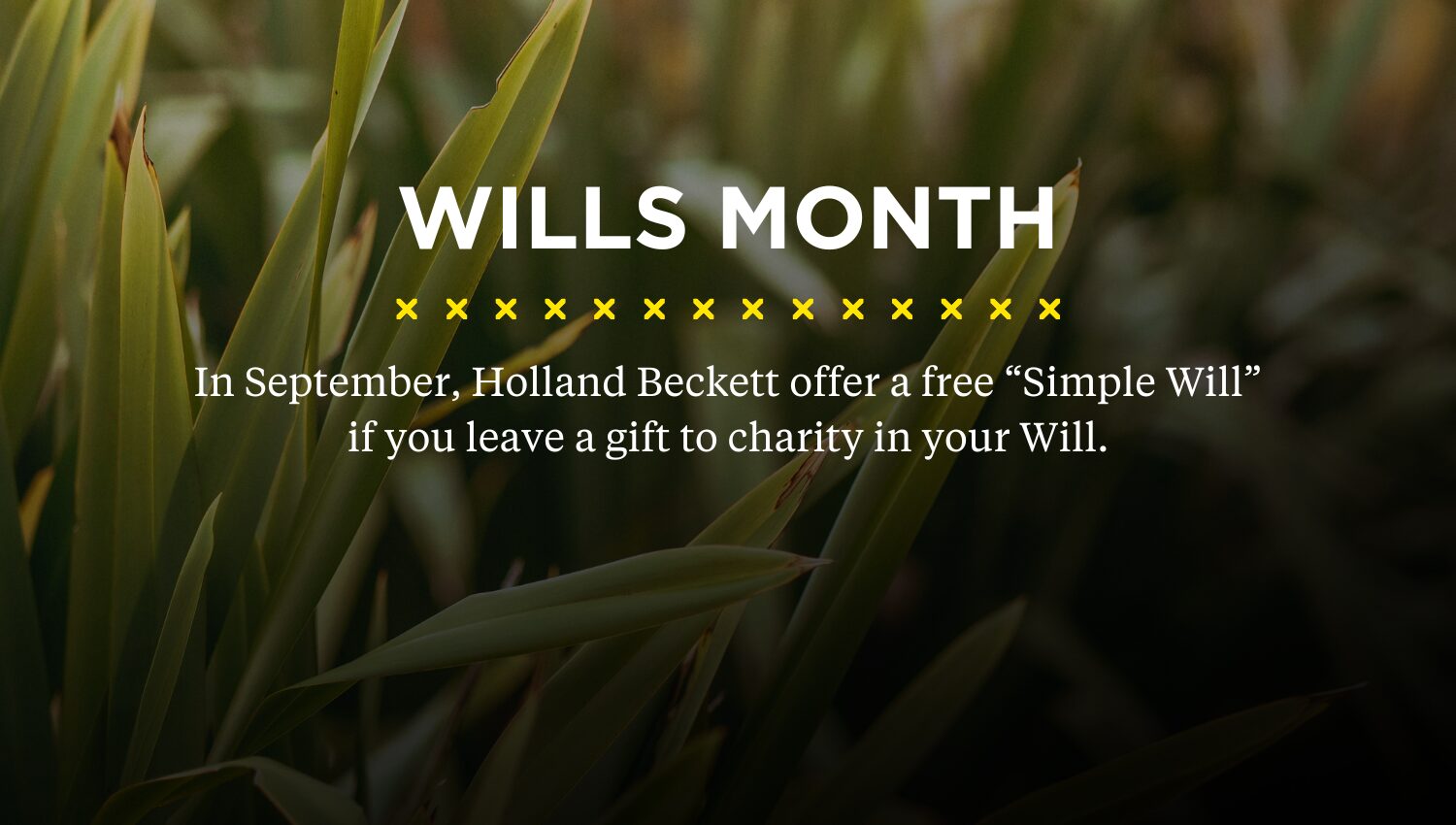A well drafted Will reduces the time, money and stress of administering your estate when you pass. At Holland Beckett, we take the time to ensure that your Will suits your circumstances, while keeping it simple.
Below are our top 5 tips to ensure that your Will is fit for purpose:
1. Choose the right executors and trustees of your Will
The executors and trustees (“Trustees”) carry out the terms of your Will. Trustees must be neutral between the beneficiaries (not biased) and make decisions together.
We recommend that you pick two Trustees who live in New Zealand, can work well together and are neutral towards your beneficiaries. This will help to make the administration of your estate straightforward and cost effective.
Where possible at least one Trustee should be younger than you, as it can complicate matters if your Trustee(s) have already passed away before you.
If your Will is complex or you think that there may be a dispute in the family after you die, then you could consider appointing an independent professional as your Trustee.
2. Dealing with personal items
When it comes to distributing personal items there are typically two options. The first, is to leave everything to a person or group of people and let them sort it out. The second, is to list what you want to do with each valuable or sentimental item.
If you prefer the second option, rather than listing each item in your Will, you can leave your personal items to your executors to distribute in accordance with any wishes you make known to them. You can then make a list which can be updated at any time, without the hassle and expense of updating your Will. The list should be kept in your lawyer’s deed safe with your Will.
3. Cash or percentage gifts
We recommend that you do not leave a cash gift in your Will. This is because, over time, circumstances can change and that gift may become a much larger or much smaller portion of your estate than you intended. Instead consider leaving a percentage of your estate. For example, instead of giving $10,000 to each of your grandchildren you could consider giving a percentage of your estate equally to your grandchildren. This means the gift will increase/decrease proportionately.
4. Understand how your property is owned
If you are leaving everything to your partner, check to see if your property is jointly owned. Jointly owned property (property ownership as joint tenants) passes automatically to the survivor, which makes for a quick and hassle free process. Any asset over $15,000 requires an application for probate (Court authority) to deal with that asset.
Check how your insurance policies are owned. If you own the policy, your estate will likely need to apply for probate and the proceeds will be distributed in accordance with the terms of your Will. If the policy is jointly owned, or owned by someone else, then that person may be able to access the policy straight away.
If in your Will you leave your partner a life interest to live in a property, that property should be owned as tenants in common (where you each own a share).
5. Understand your debts
If you want to leave a vehicle or property to a beneficiary that is under finance, consider how the debt will be repaid – does your estate have enough to repay the debt? Are you giving that particular property to the beneficiary on the condition they take on the debt?
Unfortunately, even the most carefully crafted Will can become impractical or even void if your circumstances change. While we try to plan for this with our Will drafting, if you have any major change in circumstance – such as a birth, death, marriage, separation, divorce or a family member moving overseas – you should have your Will reviewed and potentially updated.
Holland Beckett can assist with preparing your Will or reviewing an existing one. If you have any queries please reach out to a member of our succession and estates team.











